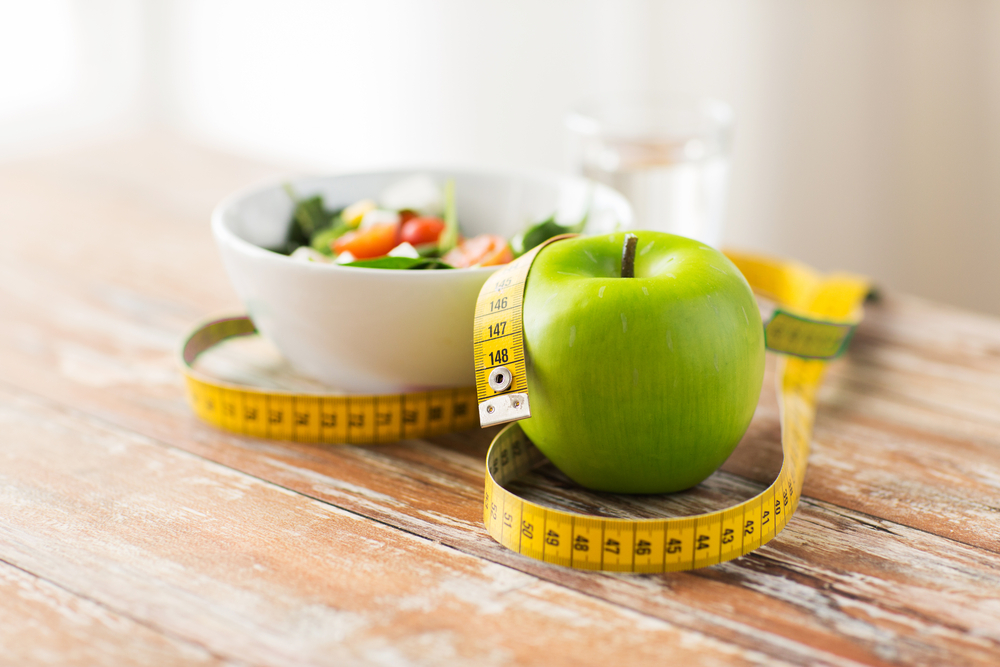Weight loss is the dread of many people and for good reason, when we think flat stomach, we think drastic diet. Yet it is possible to lose weight by eating 4 or 5 meals a day without ever feeling hungry and remaining in perfect health.
5 preconceived ideas about weight loss
- There are no miracle solutions: Some people think that to lose weight it is enough to follow diets or 8-week miracle programs promising them to lose 10kg in 1 month, or even magic slimming creams such as -12cm in 1 night. . . yet this is a big mistake, these types of programs are not adapted to a sustainable weight loss and the lost kilos are quickly back.
- You have to stop eating to lose weight : Some dietary programmes offer very low calorie plans. . . the problem is that when you don't eat enough, the risk of vitamin and mineral deficiencies increases and this is a danger to your health. Worse, when the body lacks too many calories it activates a "survival" mode: it will store everything that is ingested and it will then be impossible to lose the excess weight.
- Fats are the enemy of weight loss. There are many misconceptions about fat and weight gain, but they are far from the only culprits. Carbohydrates also play a major role. However, both are essential for good health, which is why it is important to follow a balanced diet over the long term so as not to miss out on vitamins and minerals.
- All you need to do is sit-ups to get a flat stomach. Too many people go crazy on their abs in the gym hoping to lose belly fat. . . yet the only way to lose belly fat is to eat a healthy, balanced diet. Physical activity burns more calories and strengthens muscles. . . but it doesn't lose those extra pounds.
- You have to look like the stars in the magazines. Many people still identify with the images in magazines and social networks and live with the dream of looking like them. There is no ideal body shape or weight, the important thing is to feel good about your body and be healthy.
How weight loss works
To lose weight, you simply need to focus on your calorie intake. If you eat more calories than your body consumes, you gain weight and conversely if you eat less calories than your body consumes, you lose weight.
In order to know the calorie intake necessary for weight loss, it is necessary to know how to estimate the average calorie requirement. Between the ages of 20 and 60, an active woman needs about 1700 to 2100 calories per day. A man will need to consume an average of 2,200 to 2,500 calories a day, so you need to have a total calorie requirement that is lower than your daily requirement to lose weight.
Calculating your daily caloric needs
It is necessary to know the basic metabolism, to do this it is enough to apply a simple formula:
- Male = + - (6. 75 x Age) + 66. 47
- Woman = + - (4. 67 x Age) + 655. 1
Once the basal metabolic rate is obtained, it must be multiplied by the coefficient corresponding to the physical activity.
- Slightly active=x 1. 1 (office work and low physical training)
- Slightly active=x 1. 24 (office work and moderate physical training)
- Very active=x 1. 4 (active work and moderate training)
- Extremely active= x 1. 62 (active work and intensive physical training)
In order to lose weight, the total obtained must be reduced by about 10% or 20%.
Example calculation
- 30 year old man, 1. 8 metres, 80 kilos, very active
Basic metabolism : (13. 75 x80) + (500. 33 x1. 8) - (6. 75 x3
1) + 66 . 47= 1864. 6
Total daily calorie requirement: 1864. 6 x 1. 4=
261
1
The daily calorie requirement will be 2610 ckal, to be adjusted according to the goal. For a rapid weight loss you should reduce your intake by about 20%: 2610 / 1. 2 =2175.
- 30 year old woman, 1. 7 metres, 60 kilos, very active
Basal metabolic rate : (9. 56 x6
1) + (184. 96 x1. 7) - (4. 67 x30) + 655. 1 = 563. 6 314. 43 140. 1
= 1393
Total daily calorie requirement: 1393 x 1. 4= 1950. 2
The daily calorie requirement will be 1950. 2 ckal, to be adjusted according to the goal. For a rapid weight loss we will reduce the total by about 20%, i. e. : 1950. 2 / 1. 2 =1625
Example weight loss programme
These programmes are designed for a man and a woman of 30 years of age, with a rather active lifestyle (3 times a week) and wishing to lose some weight.
Weight loss diet program, Female: 1600ckal
| Food | Quantity |
|---|---|
| Oat flakes | 50 grams |
| Natural yoghurt 0% | 1 serving |
| Green tea | 1 cup |
| White cheese 0% | 150 grams |
| Peanut butter | 30 grams |
| Lean meat (chicken, turkey, ground steak 5%) | 150 grams |
| Cooked legumes (lentils, beans, chickpeas. . . ) | 150 grams |
| Vegetables | Ilimitated |
| Olive oil | 1 teaspoon |
| Portion of fruit | Approximately 70 grams |
| White cheese 0% | 150 grams |
| Dried fruit | 20 grams |
| Lean meat, fish (white) | 200 grams |
| Cooked legumes (lentils, beans, chickpeas. . . ) | 100 grams |
| Olive oil | 1 teaspoon |
| A fruit or yoghurt | 1 |
Weight loss diet program, male : 2100ckal
| Food | Quantity |
|---|---|
| Oat flakes | 80 grams |
| Natural yoghurt 0% | 1 serving |
| Green tea | 1 cup |
| White cheese 0% | 200 grams |
| Peanut butter | 30 grams |
| Lean meat (chicken, turkey, ground steak 5%) | 200 grams |
| Cooked legumes (lentils, beans, chickpeas. . . ) | 200 grams |
| Vegetables | Ilimits |
| Olive oil | 1 teaspoon |
| Portion of fruit | Approximately 70 grams |
| White cheese 0% | 200 grams |
| Dried fruit | 30 grams |
| Lean meat, fish (white) | 200 grams |
| Cooked legumes (lentils, beans, chickpeas. . . ) | 150 grams |
| Olive oil | 1 teaspoon |
| A fruit or yoghurt | 1 |
4 tips to make dieting easier
- Don't set an ideal weight. Aim for a goal that feels good, not a number on the scale that can be a source of additional stress that could bring back the lost pounds.
- Eat several meals a day. As shown in the programs, it is better to eat 5 times throughout the day, than 3 times and feel hungry.
- Vegetable proteins are also important. We should not forget that vegetable proteins are a very interesting alternative. They allow you to vary your menus while respecting the daily protein intake necessary for muscle building.
- Seek medical advice. Sometimes, excess weight is not only related to diet. It is therefore advisable to consult a doctor before embarking on a diet.



